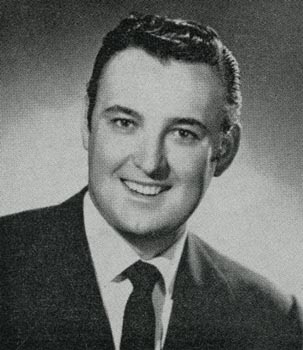André Mallabrera

He made his debut as Almaviva at the Opéra-Comique on December 14th, 1958. Almaviva was to become his most important role; he sang it,
according to himself, about 250 times, and it was also his farewell from the stage at the Théâtre des Arts in Rouen in December
1988. At the Opéra-Comique, he sang continuously from his debut to 1973; other than Almaviva, he was Wilhelm Meister there, Comte Ory,
Nadir, Vincent, Ernesto, Alfred (Fledermaus), Gonzalve (L'heure espagnole), Léandre (Le médecin malgré
lui), Pomponnet (La fille de Madame Angot) or Paolino (Il matrimonio segreto); he also sang several comprimario parts.
Comprimario only was his fare at the Paris Opéra, where he sang a few times between 1962 and 1972.
After 1973, he sang at the important French provincial theaters as well as abroad (Rome, Bologna, Madrid, Geneva, Monte Carlo...); more and
more often in comprimario parts, though. He also sang a lot in operetta and concert. The last of the great French tenors...
Reference 1: Kutsch & Riemens; reference 2 and picture source: www.artlyriquefr.fr (alas defunct)
|